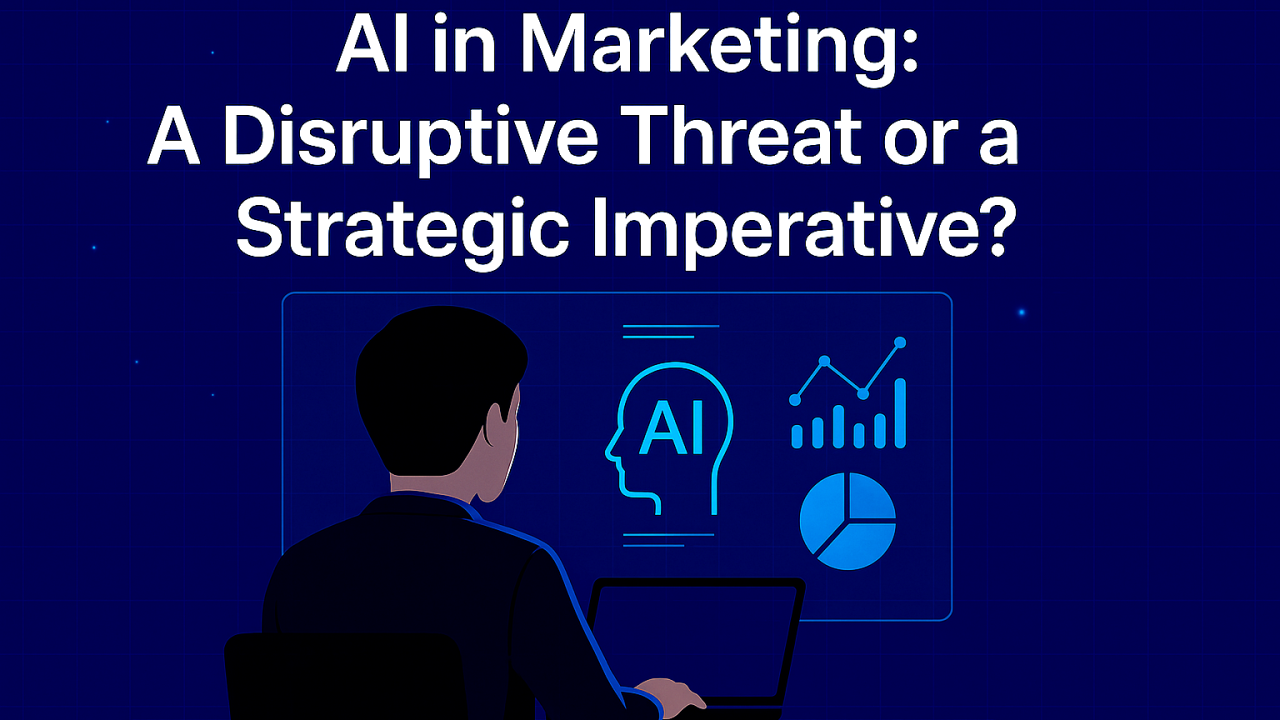Artificial intelligence (AI) is now at the core of marketing. It is no longer just the technology of the future; it has become one of today’s most powerful competitive advantages. While marketing professionals are excited about the new opportunities AI offers, they also face challenges related to workforce transformation, ethical concerns, and loss of control.
Personalized campaigns, dynamic budget optimization, and automated content generation are no longer novel but standard practices. Yet, the speed of adaptation varies greatly across organizations and professionals.
In this article, we will explore the evolving role of AI in marketing, along with its benefits and questions it raises—supported by examples from both local and international markets. Should we fear this transformation or adapt and move forward?
What Does AI Offer in Marketing?
One of the most concrete contributions of AI to marketing is the transformation of reporting processes. What once took hours to analyze manually can now be turned into actionable insights within minutes through AI-powered dashboards. Tools like Google Looker Studio and Microsoft Power BI accelerate data interpretation and offer predictive insights. As a result, marketing managers can make more accurate budgeting decisions and monitor campaign performance in real time.
Another key area is AI-driven chatbots. Customer service is no longer limited to call centers; 24/7 multilingual support through websites, WhatsApp, Instagram, and Facebook is now a norm. In sectors like retail and aviation, chatbots provide personalized recommendations and travel updates, enhancing the customer experience and increasing brand loyalty. In industries such as tourism and hospitality, automated response systems simplify booking processes and improve operational efficiency.
AI is reshaping both the strategic and operational dimensions of marketing. Key areas of application include:
- Segmentation and Personalization: Recommender systems and individualized user journeys provide tailored experiences based on behavior and preferences.
- Content Generation: Tools like ChatGPT and Jasper can produce blogs, product descriptions, and campaign messages within minutes.
- Media Planning and Optimization: Automated campaign models such as Performance Max and Advantage+ handle budget allocation, audience targeting, and ad delivery.
- AI-Powered Customer Service: Chatbots help streamline communication, reduce service delays, and offer consistent user support across platforms.
Market Practices from Turkey and Global Landscape
Many industries are integrating AI into their marketing processes to accelerate digital transformation:
- Fast Delivery and Logistics: AI helps optimize delivery routes, forecast demand, and manage promotional campaign timing.
- Retail and Fashion: Recommendation engines, inventory forecasting, and dynamic pricing are enhanced by AI. Personalized marketing campaigns are created based on customer behavior.
- Tourism and Hospitality: AI-driven chatbots provide multilingual support around the clock, easing booking processes and improving customer satisfaction. AI analytics optimize occupancy planning and seasonal strategy.
- Health and Wellness: Chatbots are used for appointment scheduling, procedure inquiries, and patient information. Advertising budgets and content performance are also managed using AI tools.
These examples demonstrate that regardless of industry or scale, AI integration significantly boosts marketing efficiency.
How Is AI Changing Marketing?
- Accelerated Decision-Making: Tools like Tableau and Looker transform reports into decision-making engines with AI integrations.
- Creativity Enhanced by Automation: In marketing and advertising, AI-generated visuals and texts now complement the creative efforts of teams. AI tools bring speed and variety while preserving human creativity.
- More Dynamic Campaigns: In media and entertainment, marketing campaigns that blend user data with creativity are on the rise. Year-end summaries and personalized content foster higher engagement and shareability.
- Agency Models Are Evolving: Marketing agencies are transitioning from traditional models to AI-first service frameworks. From content creation to media planning, AI-supported services are being structured for faster, data-driven, and scalable campaign development. At Digital Exchange, we are restructuring our processes with an “AI-first” approach to deliver smarter marketing solutions to our clients.
Should We Be Afraid?
For those clinging to outdated methods and resisting change, yes. But for professionals who are open to learning and adaptation, AI is less a threat and more a “superpower.”
- AI doesn’t replace marketers; it replaces marketers who don’t know how to use AI.
- Human creativity, strategic thinking, and ethical judgment remain indispensable.
Should We Embrace It?
If we aim for more efficient, faster, and effective marketing processes—absolutely. Here’s why:
- Test budgets can be used to run dozens of ad variations.
- AI tools automatically trim videos and add subtitles.
- Email subject lines with the highest open-rate potential can be predicted by AI.
Conclusion: The Future of Marketing with AI Has Already Begun
Artificial intelligence is not just a tool—it’s a new way of thinking. Marketing teams must see AI not merely as an aid but as a strategic partner.
If you hesitate today, you may fall behind tomorrow. There’s no perfect time to jump on the AI train—because it has already left the station.
📌 Do you see this transformation as a threat or an opportunity? Where do you stand in your journey with AI?
I look forward to reading your thoughts and experiences.


